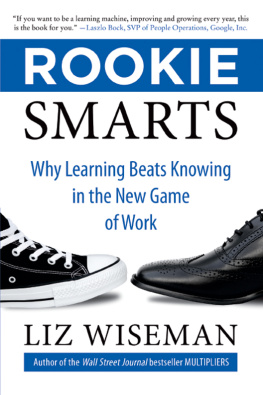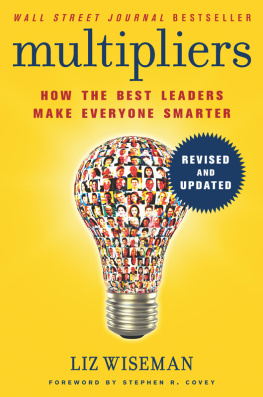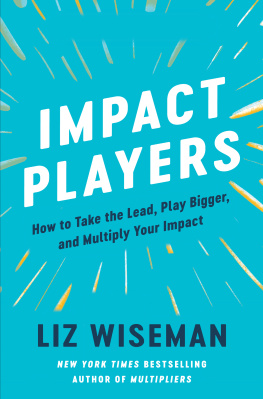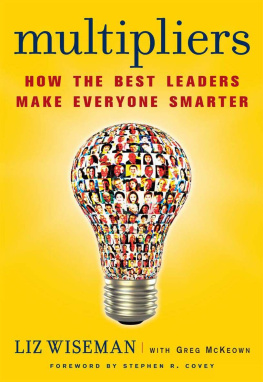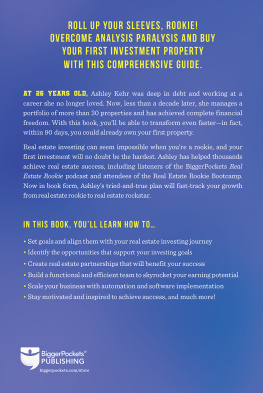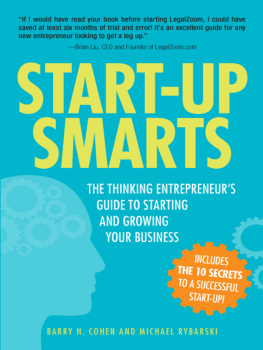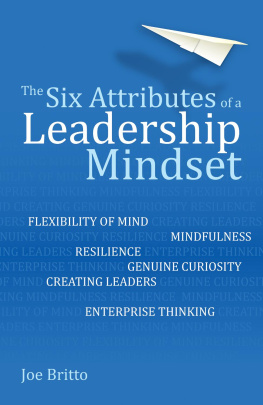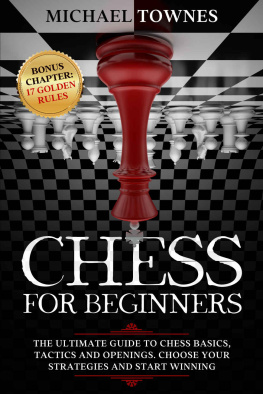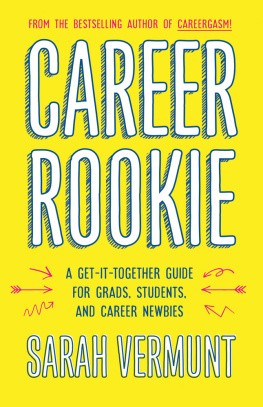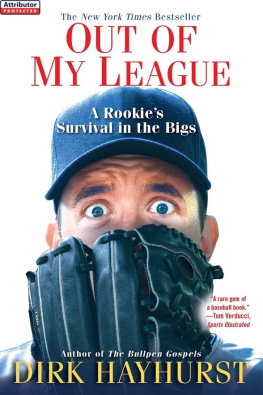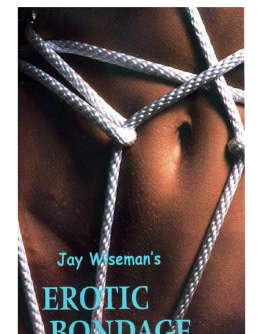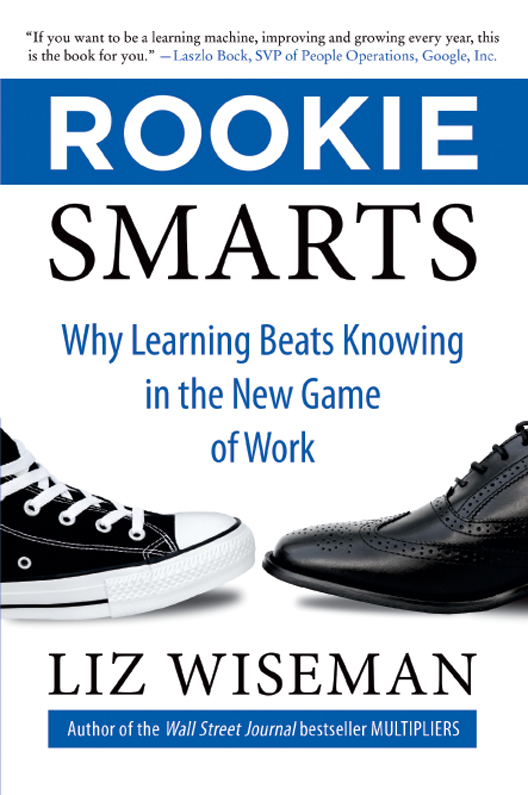To Larry, who has never lost his sense
of adventure and childlike wonder.
You shall not cease from exploration and the end of all our journeying will be to arrive where we started and know the place for the first time.
T. S. ELIOT
CONTENTS
When is not knowing more valuable than knowing?
Why are you often at your best when you are new to an undertaking, doing something for the first time?
Ive often wondered about these questions, too. At the age of twenty-four, just a year out of business school, I was thrown into a management role, due more to circumstances than to capabilities. I was working at Oracle, at the time still a young, maverick software company that was doubling in size each year. After a year of teaching Oracle software to new recruits, I was put in charge of company-wide training and charged with building a new corporate universitya task about which I knew absolutely nothing. The job felt more than a few sizes too big for me. Nevertheless, it seemed unwise to begin my career by turning down a promotion.
With only a little direction from my supervisors, I went to workwith no grand vision and no clue how to build a corporate university. And yet I understood that my task was critical to the companys future: If our sales force and field consultants didnt know our new product inside and out, it would probably break the young company. So, it was critical that I figure out how to get it right. My own ignorance, coupled with the harsh reality that my work mattered because it was directly linked to the companys future, prompted me to talk with everyone and anyone I could in order to close this knowledge gap. Mine was a humility born of desperation.
My team was made up of recent college graduates who were also new to corporate educationall of us lacking experience but sharing a hunger to make our marks. Together, we went to work seeking out conversations and interviews with product bosses and senior field managers, trying to understand what information needed to be taught to whom by which dates. With few resources and tight timelines, we kept our model simple: The university would mobilize existing experts and resources and create a learning environment where technical knowledge could be transferred to those working with customers.
We decided to co-opt space on the current campus rather than to build a stand-alone facility, a costly, time-consuming process that was the norm at the time. Without a stand-alone location, our campus-within-a-campus needed an even stronger identity and gravitas, so we decided to adopt an official crest and a Latin motto. Knowing no Latin myself, I phoned nearby Stanford University and asked to be connected to the humanities department. Within a minute, I had a professor of Latin on the phone. I explained our need, and asked him to translate our chosen motto, Knowledge Is Power, into Latin. He seemed amused, if not exactly delighted, by my nave but sincere request and carefully spelled out Sapere Est Valere (literally, to know is to have power). I thanked him for his time, hung up the phone, and called the companys T-shirt vendor to order several hundred T-shirts with our collegiate crest. Oracle University was now official.
Within a year, I was asked to expand Oracle University to serve more than one hundred countries around the world. Once again, none of my bosses seemed concerned that I didnt have international work experience and had, in fact, never traveled outside the United States. When I mentioned that I lacked a passport, I was told to get one, fly to Europe, and figure things out.
Our team was scrappy, but we continued to move fast. From my perspective, everything seemed to be working well. That is, until the day my immediate superior, the director of human resources, sat me down and explained that due to the companys fast growth, we now needed an experienced manager to lead Oracle University. He told me that a candidate for the job was coming in the next day to interview with a few senior executives. Ouch. I was devastated. But I could certainly understand the wisdom in hiring a more experienced manager. The next day a man named Jay, who looked every bit the experienced training executive Id expected, met with me and then interviewed with the senior executives. Meanwhile, I weighed my options: Should I leave the company or stay and learn from the person who had been brought in to replace inexperienced me?
It turned out that my ruminations were unnecessary. The following day, my boss came to my office and announced emphatically but rather awkwardly, Weve decided not to hire Jay or anyone else to take over Oracle University. Wed like you to continue in the job. What? While I was still reeling, he apologized with dignity and grace that I still admire today, I misjudged. When I solicited feedback from the executives, they were perplexed that I wanted to hire someone else. They assured me that you and your team are doing a great job and they were adamant that we not hire someone else.
Their vote of confidence was reassuring, but I still wondered why they would want to keep a rookie like me on in such an important role. Further reflection clarified what, at first, seemed to be a counterintuitive decision: Because I had no agenda of my own, I eagerly sought guidance from both product experts and senior leaders; because I lacked experience, I worked cautiously, staying close to my stakeholders, reporting on progress and outcomes, and continually seeking feedback. The obvious gap between the size of the job and the length of my experience forced me to leverage any and all available resources around me. My value didnt derive from having fresh ideas; it came from having no ideas at all. What my team and I lacked in experience and conviction we compensated for with our willingness to learn, to think creatively, and to deliver quick wins to prove ourselves.
This experiencesimultaneously scary, exhilarating, unpredictable, and extremely rewardingshaped my outlook as I continued to lead Oracles corporate university for the next fifteen years. My boss Bob would occasionally tease me and mention to others how underqualified I was for my job. I reminded him that I didnt actually want a job I was qualified forthered be nothing to learn. I came to realize that the best jobs are often the ones were not fully prepared for. Eventually my learning curve flattened, and I came to a troubling realization: I was, at last, legitimately qualified for my role. I had ascended the steep slope of ignorance and found myself on a plateau of accomplishment, gazing at a flattened landscape. Like others stuck on a plateau, I was relying on routines and building on past successes. Honestly, my work had become mediocre. Determined to recapture these earlier feelings of exhilaration, I left the cradle of my career in search of something I didnt yet know how to do. Sure enough, in this foreign, virgin terrain, I once again began to do my best work.
Sometimes not knowing is more valuable than knowing. A certain genius gets sparked in our rookie state and a learners advantage kicks in.
Is it possible that we can be at our best when we are underqualified, doing something for the first time? With the right mindset we can. When we are stretched to reach beyond our current capabilities, we can open ourselves up to learning from everyone and everything around us and tap into a different mindsetwhat I have come to call rookie smarts.
While coaching executives and teaching leaders around the world in my post-plateau, post-Oracle life, Ive seen rookie smarts at play over and over again; Ive seen people on fire, doing their best work while closing massive knowledge and capability gaps. Sometimes a young professional has been given the chance to hit above his weight class. Other times an executive has taken on a new assignment outside her area of expertise. Once out of their comfort zone, these rookies experience a sense of challenge and exhilaration. One executive described his first month at his new job: Its so much fun to be doing something new and invigorating. I have to turn my brain on and have to really think again. I felt so stale in my last job, and I welcome the challenge. Whether the rookie is a new college grad or a seasoned executive, behind them you will likely find a manager who took a risk and bet on their ability to learn quickly.

